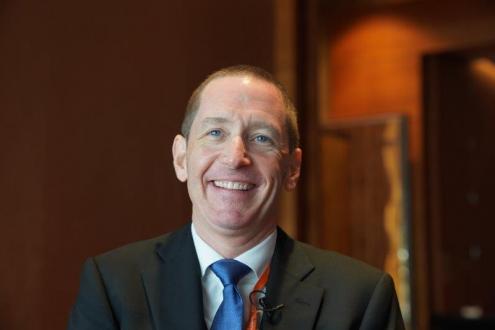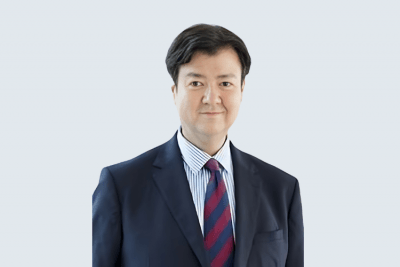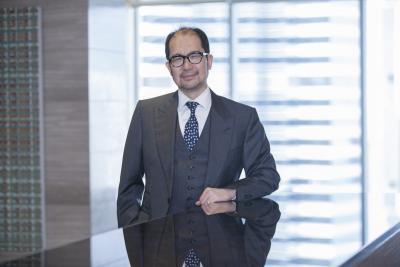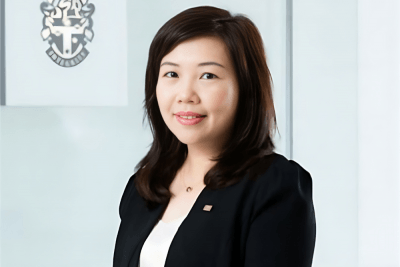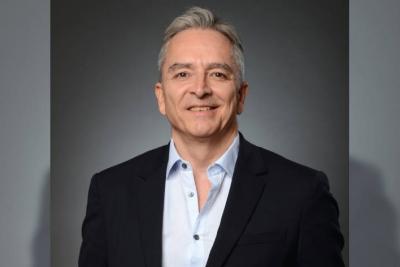Wealth Solutions & Wealth Planning
Singapore-based US-centric Lawyer John Shoemaker on the Art and Practice of Compliance
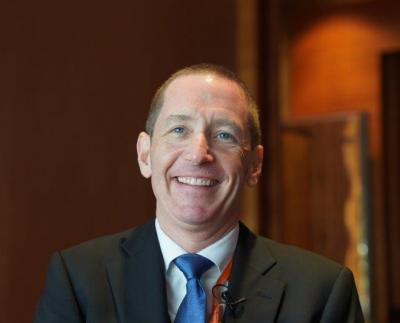
Aug 5, 2020
John Shoemaker, a Registered Foreign Lawyer for US law firm Butler Snow in Singapore, is an expert on regulation, compliance and good practice, offering advice to wealth management intermediaries and their wealthy clients. He began his working life on the regulatory side, working for the Kansas State Legislature, and then for the Kansas Insurance Department, before moving into an insurance company as in-house counsel, then covering a 13-state jurisdiction. That gave him his first interaction with multi-jurisdictional compliance and was a springboard for his move to Switzerland to work for a global Swiss bank. He later relocated to Singapore, where he specialises in helping high net worth clients, in relation particularly to US issues, and how they integrate with other jurisdictions. In short, he has a big picture view of global and regional compliance. Hubbis ‘met’ up with him recently to learn more about his views on regulation, and about the man himself.
Transparency is the new reality in the financial sector, Shoemaker had told delegates at a Hubbis conference on Compliance in Asian Wealth Management in January this year, just before the pandemic hit. He had highlighted how, in the old world of banking secrecy and far less cross-country exchange of information, transparency was not so vital, or rather not so well practised, because certain institutions or families would have assumed nobody would truly scrutinise any structure or their transactions. “But as we know,” he says, “that has completely changed now. We live in a new world of regulatory rectitude and global reach by national and transnational authorities.”
Accordingly, Shoemaker underlines why wealth industry participants need to fully understand why a client is being onboarded, or why a structure or transaction is taking place. It is not possible to know everything, he told delegates in January, but the key is to be able to spot where they might have a problem and bring in a colleague or other expert when necessary.
Being contemplative
Throughout all the dealings with clients and other parties, private banks and wealth advisors must constantly be aware and thoughtful. “I call this the ABC approach,” he begins, “standing for Always Be Contemplative.”
And contemplative is what Shoemaker is himself. He explains that he had recently read an interesting article that talked about the evolving role of lawyers as the new private wealth advisors, the role that bankers had previously filled. “In today’s world,” he observes, “subject matter experts are expanding their remit, whether it's dealing with family offices, tax amnesties and privilege issues, handling public perception versus the legal and tax issues that we advise specifically on, and so forth.”
He reiterates that the global financial crisis was the catalyst for the fundamental shift towards transparency, when secrecy was thrown out of the window in favour of transparency, tax mitigation replaced tax evasion. “Today,” he reports, “the goal posts have moved, and my discussions with clients are focused on private clients, for example, the family offices, achieving the efficiencies and standards they require in today’s environment.”
Privileged insights
He explains that firms such as Butler Snow are able to have the privilege of confidentiality that bankers today do not, and law firms are also away from the potential conflicts of interest of selling a product or other financial solution. “When zero tax and banking secrecy were the norms, then the banks and the clients were clearly aligned in their goals,” he notes, “but today a banker has to really think about his personal liability and his allegiance to protecting the bank from trouble. We are free of such anxieties, and our mission is completely aligned with the clients’ end goals.”
He elaborates on this perspective, adding that today the clients realise there is a real-world, identifiable downside to mistakenly believing that he or she as the client is aligned with the bank. “The role of the lawyer becomes even more important to assure the clients that they are immune from harm by taking certain actions,” he adds.
Building awareness
The conversations with such clients tend, Shoemaker explains, to focus first on making sure they are aware of any particular legal and regulatory issue. “As a US-specialist firm, a major issue is often what it is to be a US person for tax purposes,” he reports. “Some folk are US citizens, others hold Green Cards, and the latter actually means permanent resident, so people need to understand they are US resident, wherever they are in the world, at any time during the year or the decade they have that card for income tax purposes and estate tax purposes. Many people do not grasp this.”
Another example he cites is the US estate tax, where people might be aware that trading in US securities or other assets could trigger US estate taxes, but do not realise this can be planned for very simply by holding assets through a separate corporate entity rather than in the individual name. “In short,” he says, “we provide the clarity, then the solution, and the anxiety is allayed.”
He also highlights how his firm’s advice is often to the benefit of US-resident family members on non-US Asian families, something that is especially important as Asia is now going through a vast transfer of wealth from the older, founder generations to the second and third and even fourth generations, some, and sometimes many of whom will be living, studying or working in the US, or where the families will have substantial US assets to consider.
Asia-US connectivity runs deep
“There are so many of those families both in Southeast Asia, and in Asia in general that have taken advantage of educational and business opportunities in the US to send their second and third generations to live and work in the United States,” he comments, “but of course that has created tax complications. We do a lot to help facilitate these families to understand the nuances of the US system and create an efficient transfer to the next generations.”
Another key area of focus is both pre-immigration as well as exits from the US system.
“Planning ahead efficiently and compliantly to live in the US, or to later exit the Green Card status is vital,” he reports. “If someone has an Asian country passport and wants to exit the US permanently, they need to ensure that they don’t inadvertently trigger a complication with the US tax and legal system at the time, or later on.”
He explains how for tax issues, he considers the perspective to be on tax efficiency these days. “Clients need to be made aware of the issues so that they understand the complexities of US taxes in relation to them, or their assets and family members, and then make sure they do not suffer unintended tax consequences. It scares a lot of people, as it is complex, and our role is to help educate them and then help then plan by choosing from a number of viable, compliant options.”
Open dialogue
Shoemaker says his personal style is to communicate the details as simply and effectively as possible. “I am a big believer that if you can't explain something simply, then you don’t understand it well enough,” he says. “I worry that some experts hide behind the complexity, but I try to go the extra yards to offer simplicity and make sure the client fully appreciates the issues and possible solutions.”
He adds that he also considers what differentiates a good advisor in his field is the ability to be agnostic. “These wealthy and very rich families often do not have people disagreeing with them,” he observes, “but our value must be to speak the truth, and that is our added-value, our power for those families. We need to be able to state clearly that there are no ways around the rules that may be governing their particular situations, but that we need to structure things properly to work within those rules.”
Fees – an open approach
He then addresses the issue of fees, remarking that nothing is for free. “If clients do not see bills from their bankers for certain advice or transactions even, then they need to wonder where those bankers are getting paid. Similarly, for lawyers, we must be up-front and transparent. We are now, for example, slowly introducing the concept of a cap on some fees to Asia; this has become more prevalent in the US and where possible in Asia, it is slowly materialising. The clients out there can think about this as a means of ensuring their expert advisors are straight with them, and the relationship will be a good fit for their family structures.”
Shoemaker then raises the notion that there is societal pushback on lawyers gaming the system because their wealthy and uber-rich clients pay for expertise that other people really cannot. “We all need to keep in mind the growing consciousness of social justice and injustices when we are dealing with our clients,” he advises.
Not my problem!
He elaborates on this concept, noting that there is an adage ‘it may not be your fault, but it is your problem’.
“There are many situations where generations within wealthy families have achieved a monopoly-type situation in businesses in Asia, or inherited without working for that wealth, and the reality is that, should government try to redress, or even confiscate assets or business franchises, the younger generations tend to say they are not to blame. Well, that may be true, but it is their problem, and they have to deal with it. In the wider context, we all have to acknowledge that redistribution of wealth as a concept has become more mainstream than it was in recent decades.”
He points to France as a cautionary tale. The government there suddenly decided trusts were only used by tax evaders and ramped up the wealth tax to confiscatory levels.
“We probably need to now start the dialogue with regulators and governments to make sure this type of situation does not evolve,” he says. “Moreover, there are still plenty of folks in the old generation of advisors and clients who remain stuck in that mindset of banking secrecy, and the risk is that the global regulatory freight train simply smashes all of them out of the way. We need to see all of our situations and roles within the global economy and balance things so that we are not creating a short-term gain that creates long-term problems for us and our clientele.”
Spotting the ‘pain’ points
Shoemaker then comments that both lawyers and bankers need to be better ‘spotters’, meaning that they need to be aware of the issues, the pitfalls and the potential solutions. “A client really just needs to know enough to appreciate that they face an actual or potential issue, and then to understand as a result where they need to take very specific advice. Private bankers worth their salt can definitely be good stewards of that awareness, and that process and work within their ecosystem of referrals to experts to help their clients address and solve such issues. A banker is never going to know everything about every regulatory issue, or every country’s jurisdiction, but they can cultivate relationships and filter those experts for their clients.”
He adds that this drive towards specialisation and personalisation will extend across all elements of the wealth and financial sectors, from trustee services, corporate management services, life insurance and accounting services. “For example,” he elucidates, “client-specific accounting is going to grow exponentially over the next 10 years as all of the CRS and FATCA data starts going around the world to different tax authorities. The private banker can help guide the clients in these directions as well, thereby ensuring their role is truly aligned with their clients, as they help them select the subject matter experts that will be ever more essential.”
Charting the right course
Shoemaker closes the conversation by reiterating that there are always grey areas, so the line between avoidance and evasion in tax matters must be constantly and carefully assessed. Smart clients hire the right professionals who help them navigate the lines between genuine avoidance, which is conducted legally and correctly, versus evasion, which is illegal. This sounds a bit serious, but of course, it is. And when dealing with cross-border issues, for example into and from the complex US jurisdiction, addressing these matters efficiently, comprehensively and in a timely manner is absolutely essential.”
His final word is to say that those individuals and families that get the approach right, that work transparently and across the generations of their families can not only better sustain their wealth but can sleep easier at night. “Moreover,” he says, “in the world ahead of us, the position of wealth and privilege in society will be in ever-sharper focus. Families should be aware of this wherever they are.”
Key priorities
“First,” Shoemaker says, “this hiatus in global economic and social activity is an opportunity to reanalyse a client’s current approaches and structures. Regulations are changing so rapidly, and information is flowing so quickly that the old days of sticking your money into a product or a structure or with a bank or an advisor and then just not thinking about it for years and years, those days are completely over. So, build in a kind of double-check into your annual, or perhaps even biannual review process. In short, review what you have and do not assume all is well.”
Secondly, and still focusing on the client, Shoemaker advises inclusiveness. “Nobody gains by different generations being excluded from information and discussions,” he cautions. “You are not helping your children in any way by keeping them from the intricacies of why you have done what you have done from a succession planning, from a structuring, or from an investment perspective. Involve the other generations, possibly work with an advisor who can coordinate and communicate, and who can be the trusted commonality is such conversations.”
His third priority for clients is to advise them to act on and redress issues sooner, not later. “The sooner clients learn from their own experiences and see more clearly what is happening across the globe, the earlier they can take advantage of opportunities to get things organised or corrected. The Indonesia tax amnesty is a great example – for those who declared everything right away, they had a minimal 2.5% penalty, versus fines of up to 50% for those who dithered and delayed.”
Getting Personal with John Shoemaker
Born in the state of Alabama in the southern US, Shoemaker was later educated at the University of Kansas, his mother’s home state. He graduated with his Bachelor’s degree and then obtained his law degree from Washburn University School of Law which is also in Kansas. He then earned his Master’s in Law with a speciality in tax from the University of Alabama Law School.
He is married and the couple has one dog, a Shiba Inu, which is a Japanese hunting dog. “We named her Augusta, as we got her the weekend that golfer Phil Mickelson won his first US Master’s tournament, which each year is held at the same course, Augusta National in Georgia. The dog kind of looks like a small wolf, and of that type of dog, the largest are the Japanese Akita dogs, which are very closely connected to wolves at some point in the past.”
He quips that a great turning point in his life was leaving the US. “I say that both tongue in cheek, and also genuinely,” he comments. “I am now working on a little article for my hometown Bar Association’s magazine, and it's called ‘I love America, I Left It, and You Should Too.’ I am a firm believer that my life was fundamentally changed by getting out of the small pocket that I grew up in and really getting a chance to see how other people and cultures treat issues and problems, and enjoying all types of cultures, cuisines, in fact, every element of life on offer.”
He adds that the move to Singapore has suited him remarkably well both from a work and lifestyle perspective. “It is a great location, a great place from which to explore Asia Pacific,” he reports, “and not too bad from a financial perspective, as well!”
He is a great believer, he says, in lifelong learning and himself has multiple degrees, and even currently enrolled in another Master’s programme, this time in private wealth advising, a course co-branded with STEP, which was founded to further education and learning during wealth planning advisory careers.
He and his wife also spend a lot of time on physical fitness and outdoor activities, including Spartan races and triathlons, and other endurance events. “It really helps with work and general life de-stressing,” he observes, “especially during lockdown. The Spartan races we get to run together and help each other kind of over obstacles and climbing walls and throwing spears. It’s really a lot of fun.”

Registered Foreign Lawyer at Butler Snow

More from John Shoemaker, Butler Snow
Wealth Solutions & Wealth Planning
Premeditate and Build Pre-emptive Structures says Top Lawyer as the Winds of Tax Change Arrive
Wealth Solutions & Wealth Planning
Leading US Lawyer John Shoemaker on AEOI and the Effectiveness of Information Exchange
Latest Articles


